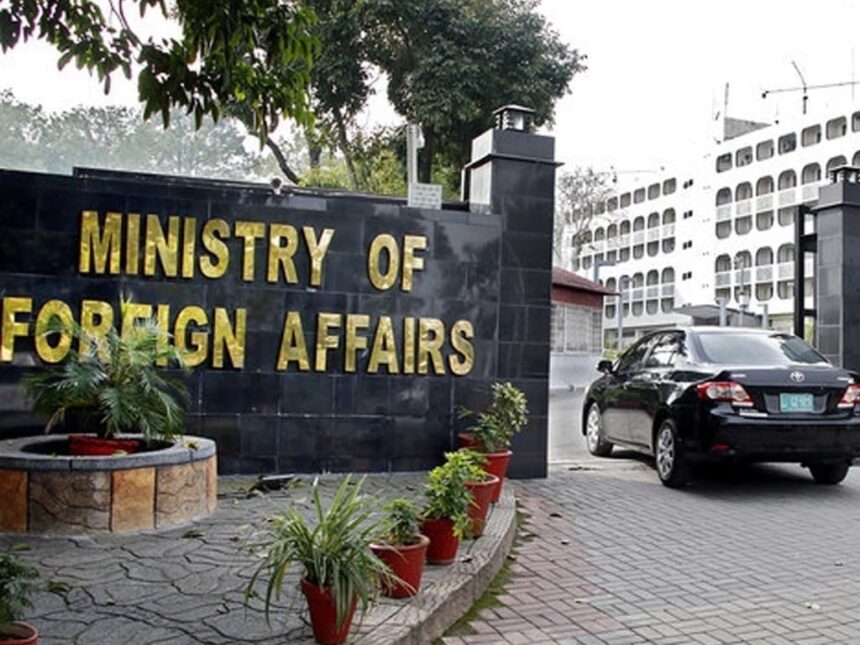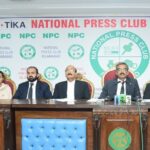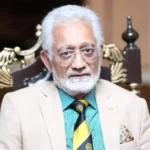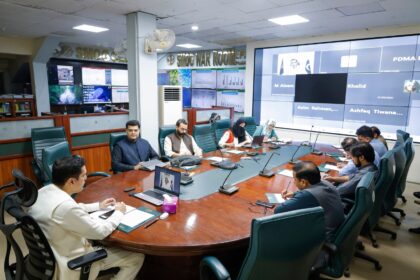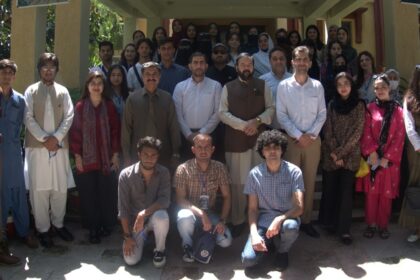Pakistan Steps Up Global Diplomacy With Leadership at UNSC and Strategic Regional Outreach
By: Changez Khan Jadoon.
Pakistan has ramped up its diplomatic activities on the international stage, taking center stage through its current presidency of the United Nations Security Council (UNSC) and pursuing a series of high-level engagements across North America, Europe, and the region. Spearheaded by Deputy Prime Minister and Foreign Minister Senator Mohammad Ishaq Dar, Islamabad has focused its efforts on promoting multilateralism, peace, and regional economic cooperation, while reiterating its strong stances on key global concerns including Palestine, Jammu and Kashmir, and Syria.
In recent weeks, Senator Dar traveled to the United States to oversee signature events marking Pakistan’s UNSC presidency in New York and participated in a series of important meetings in Washington. During the UN High-Level Political Forum, he articulated Pakistan’s commitment to the 2030 Sustainable Development Agenda, emphasizing the nation’s policy initiatives for inclusive growth, climate resilience, and much-needed economic reforms. Senator Dar advocated for a fair and inclusive international financial system to better address the aspirations of developing countries, positioning Pakistan as an active and responsible player in global development dialogues.
On the sidelines of the UN meetings, Senator Dar held discussions with UN Secretary-General Antonio Guterres and UN General Assembly President Philémon Yang. He underlined the necessity of a robust UN system for resolving disputes, ensuring development, and upholding human rights. Senator Dar used these high-profile interactions to raise unresolved issues such as Jammu and Kashmir, denouncing violations of related UN resolutions, as well as India’s alleged breaches of the Indus Waters Treaty. Reiterating Pakistan’s longstanding support for Palestine, he called for an immediate ceasefire in Gaza and forcefully rejected Israeli annexation plans in the West Bank.
A key initiative of Pakistan’s UNSC presidency was a high-level open debate on promoting peace through multilateralism and the peaceful settlement of disputes. Chairing the session, Senator Dar cautioned against the selective application of international law, citing ongoing crises in Gaza and Kashmir, and emphasized the dangers posed by unilateral actions undermining international agreements. The debate concluded with the unanimous adoption of Resolution 2788, proposed under Pakistan’s leadership, to strengthen international mechanisms for the peaceful settlement of disputes using tools outlined in Chapter VI of the UN Charter, such as negotiation, mediation, and judicial settlement.
Focusing further on the Middle East, Senator Dar also chaired a UNSC session on the Palestinian Question, delivering a strongly worded denunciation of Israel’s attacks on civilian infrastructure in Gaza. He condemned these incidents as gross violations of international humanitarian law, warned of the credibility test facing the United Nations, and urged the Security Council to act decisively in achieving a ceasefire, restoring humanitarian access, and supporting reconstruction initiatives led by the Arab League and Organization of Islamic Cooperation (OIC). The revival of the two-state solution was highlighted as the only sustainable path to peace.
Continuing his multilateral engagement, the Deputy Prime Minister is scheduled to lead a UN Security Council briefing aimed at enhancing cooperation between the UN and the OIC, underscoring Pakistan’s advocacy for greater synergy between global and regional organizations to promote peace and conflict resolution.
Beyond the UN, Senator Dar held bilateral meetings with senior officials from Austria, the UK, Thailand, and Saudi Arabia, focusing on economic cooperation, security, and investment prospects. He also met with influential figures in global investment, banking, and technology during his visit to New York, aiming to attract foreign investment and further integrate Pakistan into the global economic landscape.
Strengthening regional connectivity, Senator Dar participated in a trilateral meeting in Kabul with Afghanistan and Uzbekistan, ahead of the signing of the framework agreement for the joint feasibility study on the Uzbek-Afghan-Pakistan (UAP) Railway Project. The engagement signified a shared resolve to boost trade, development, and long-term economic prosperity across the region. Additional meetings with Afghan leadership reaffirmed Pakistan’s continued policy of constructive engagement, focused on regional peace and development.
In Europe, the 10th EU-Pakistan Political Dialogue took place in Brussels, covering a wide range of issues including the situations in Gaza, Ukraine, and Kashmir. Both sides agreed to deepen cooperation in counter-terrorism, security, and development, with the EU reaffirming support for Pakistan under the GSP+ framework. Meanwhile, in London, the 7th round of the Pakistan-UK Dialogue on Arms Control, Non-Proliferation, and Disarmament saw comprehensive talks on strategic issues, reflecting stable and mature bilateral security cooperation.
At the Ministry of Foreign Affairs’ weekly briefing, Pakistan repeated its strong condemnations of recent Israeli military strikes in Syria, calling them flagrant violations of international law and the UN Charter. The Foreign Office called for Israel to be held accountable for what it termed provocative acts that threaten regional stability and reaffirmed Islamabad’s support for Syrian sovereignty.
Similarly, Pakistan condemned ongoing Israeli military actions in Gaza, deploring the humanitarian toll, especially on children, women, and the elderly, and warning of an impending famine due to siege-induced deprivation. The Foreign Ministry urged an immediate, unconditional ceasefire, an end to the blockade, and swift humanitarian relief. It called for the establishment of a sovereign Palestinian state along pre-1967 borders with East Jerusalem as its capital as the only just and lasting solution to the conflict.
The past fortnight’s developments, as outlined in the Ministry’s briefing, showcase Pakistan’s robust approach to international diplomacy. From leading critical debates at the UN to advancing regional mega-projects and enhancing bilateral dialogues, Islamabad has projected an image of principled engagement, rooted in peace, justice, and international cooperation. In a world marked by volatility and division, Pakistan under Senator Ishaq Dar seeks to anchor its foreign policy on multilateralism, peaceful dispute settlement, and equitable development, while advocating for the rights of oppressed peoples worldwide.




